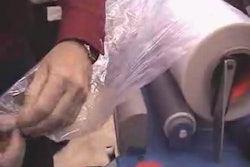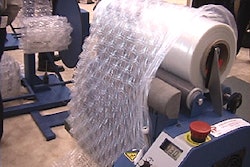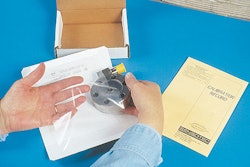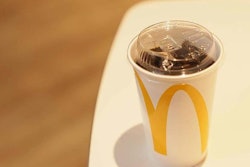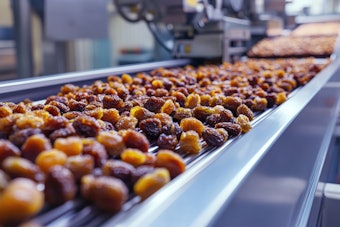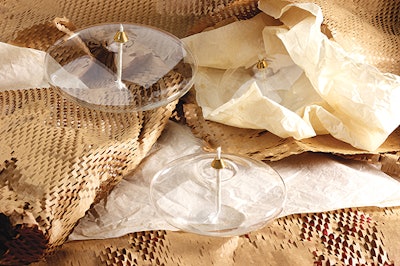
Try, try again. Such was the mantra Rich Burris, president of San Fernando, CA-based Lustrulite, repeated to himself on his seemingly never-ending quest for effective protective packaging to use during shipment of the company’s glass lamps.
First, the company used packing peanuts. When that method irked an environmentally conscious, not to mention significant, customer, Lustrulite switched to a recyclable shredded paper. But the ink from the paper stained the product. So the company began using another crushed paper product.
“Meanwhile,” Burris says, “during this entire process, we were having an ongoing battle with the United Parcel Service (UPS) because of damages. If anything breaks that’s less than 100 dollars, our contract with UPS states that they will automatically pay for it. If it’s more than 100 dollars, they want to drive out and look at how we pack. It’s a much more complex hoop that we have to jump through. Things finally came to a head when they told me they were going to discontinue servicing us because our damage rate was so high.”
UPS suggested Burris try a compressed air bag. But these were easily ruptured. “I mean, if you packed the box up and tapped it with your foot, it popped. We tried that for a couple months. It was a disaster.”
Finally, UPS suggested Lustrulite look into Geämi (Morrisville, NC). The Geämi system is a complete paper-based protective packaging system that looks like regular kraft paper with thousands of slits in it until it is fed through the company’s expanding machine. Controlled with a foot pedal, the machine pulls the paper from a roll and through it, stretching the paper into a honeycomb with thousands of little hexagonal cells. The expanded paper is combined with a layer of interleaf tissue to protect the product.



